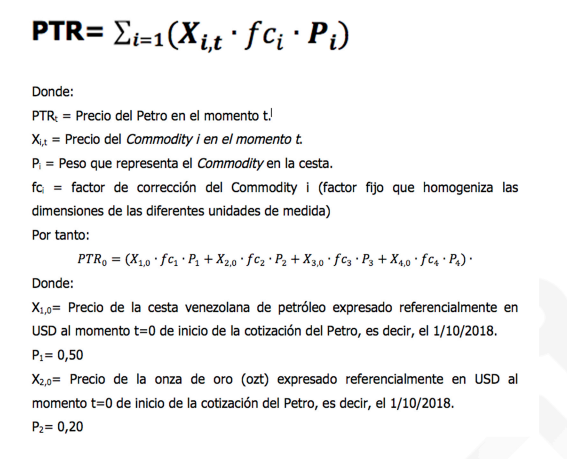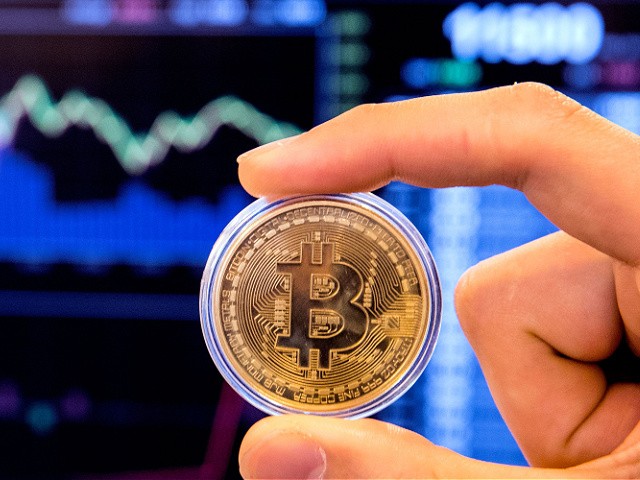CARACAS, Venezuela – The Maduro regime unceremoniously killed its scam cryptocurrency, the “Petro,” in January.
The “Petro” was one of the many failed “brilliant” ideas that the regime imposed on the country for the supposed benefit of the people, only to allegedly use it to steal more from the country’s dwindling state coffers.
The socialist regime praised the Petro as this novelty, futuristic currency that would, somehow (don’t ask me how), solve all of our economic woes – all of which were caused by the socialist regime itself. Most Petro transactions took place within the regime’s Chinese-inspired Fatherland platform, which effectively functions as our Social Credit System. The platform disabled all Petro-related operations on January 15, killing this scam for good.
Cryptocurrencies, by now, are a tried and tested financial instrument for those tech-savvy enough to engage in its complexities. Latin America now has the cases of El Salvador, which adopted Bitcoin as a legal currency, and Argentina, which recently hosted its first rental lease contract in Bitcoin, thanks to President Javier Milei’s executive decree that wiped away hundreds of socialist regulations.
For Venezuelans, cryptocurrencies like Bitcoin were one of the few ways that some were able to stay afloat amidst the collapse of socialism and infernal hyperinflation that consumed the country in the late 2010s. That much I can personally attest to, as Bitcoin, Ethereum, and Tether have all saved me quite a few times in recent years.
One can use cryptocurrencies to save money, issue payments, and even send remittances to friends and family outside of the regulations of authoritarian governments. Socialist dictator Nicolás Maduro and his regime saw in the decentralized nature of cryptocurrencies a way to “bypass” the sanctions imposed on them in response to their continued human rights violations. The sanctions successfully deprived the regime of normal funding sources and depleted their personal finances.
That is how the now-dead Petro scam came to exist. In a twist of karmic irony, the Petro, which was correctly dismissed as a scam almost immediately at the time of its launch in 2018, would end up being the method used to disappear $3 billion in regime oil revenue, at least according to the Maduro regime.
The Petro was sold as Venezuela’s “salvation” at a time when our currency, the Venezuelan bolivar, was utterly worthless. The socialist regime claimed at the time that this cryptocurrency would be different from the rest, as it was allegedly “backed” by Venezuela’s natural resources, such as oil, gas, gold, diamonds, and other precious minerals.
You may be wondering, “How does a cryptocurrency — which usually gets its value from supply and demand — get value from a country’s resources?” The socialist regime could not figure this out either.
On a still accessible website, the Maduro regime published what appeared to be an elaborate mathematical equation, claiming to use it to explain how existing natural resources back the value of the Petro. Regime officials almost immediately backtracked from their “math,” admitting the price is just set at an average of $60 per unit:

A “math” equation the Venezuelan socialist government published as an explanation of how the “Petro” scam cryptocurrency was allegedly backed by the existence of natural resources on Venezuelan soil. The regime admitted shortly thereafter that they fixed the price of the Petro to $60 a unit randomly. (Government of Venezuela White Paper)
The “salvation” part of the Petro, and the one that would allegedly translate to benefits for Venezuelan citizens, was Maduro’s claim that the country’s minimum wage would always be worth “half a Petro,” namely, $30 per month. This, just like so many other things, was a complete lie, to the surprise of no one.
The one part that was not a lie, though, was that the socialist regime used the Petro to add a new layer of obstacles to fleeing the country. The regime was swift to anchor the cost of passports, apostilles, and other document-related services to the Petro, thereby always ensuring that they would remain significantly expensive for the average impoverished citizen. In 2023, I had to pay the equivalent of $215 for a new Venezuelan passport. For comparison, Venezuela’s monthly minimum wage was $3.60 as of December 2023. Now that the Petro is dead, a passport will still cost $200.
SUNACRIP, the socialist regime’s National Superintendence of Crypto Assets and the Petro’s authority, is gone. The building that housed its offices has now been repurposed and renamed the “Essequibo Building,” part of a new scam to annex about two-thirds of neighboring Guyana, which Venezuela has contested for more than a century now:
#28Dic #Caracas @RobertLobo_ : “Lo que era la torre “Sunacrip”, Av. Urdaneta, Caracas, ahora es la torre “Esequibo”. No quedará rastro de lo q fue la Sunacrip y el Petro.
Así como tampoco se tiene rastro de Tarek El Aissami y los miles de millones $$ desfalcados.” pic.twitter.com/vn3wm6UyWd— Reporte Ya (@ReporteYa) December 28, 2023
Former U.S. President Donald Trump banned Americans from engaging in this cryptocurrency scam, thereby potentially saving U.S. citizens from being its victims.
The Petro, and the entire scheme that the socialist regime built to sustain the charade, is dead at a time in which Maduro no longer needs it. As the Biden administration has so generously given Maduro an oil and gas sanctions relief package, the socialist regime once again has its main source of income — which, by the way, it receives in the form of U.S. dollars, and not in made-up cryptocurrencies.
Christian K. Caruzo is a Venezuelan writer and documents life under socialism. You can follow him on Twitter here.



